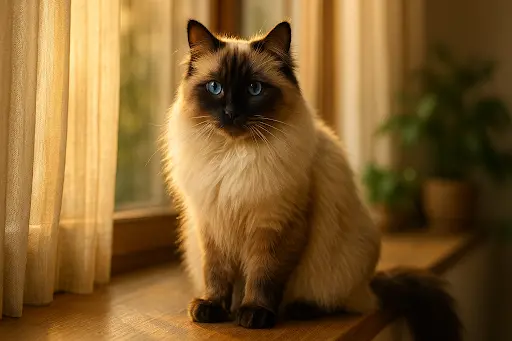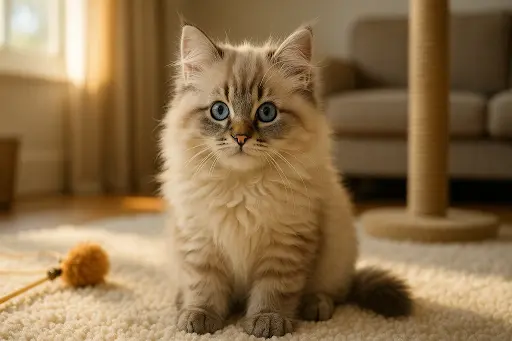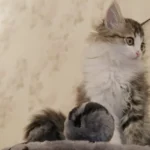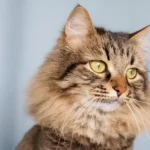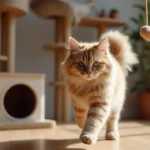Siberian Cat – Traits, Care, and Breed Facts
Learn everything about Siberian cats—from unique traits to grooming, care, and living with this majestic breed.
The Siberian cat is a powerful blend of beauty, brains, and charm. Native to the snowy forests of Russia, this ancient breed is admired for its muscular build, expressive eyes, and weatherproof coat. But it’s not just their looks that make them stand out, Siberian cats are affectionate, playful, and incredibly intelligent. Known for their loyalty and adaptability, they bond closely with their families and thrive in loving homes.
In this post, we’ll explore the essential traits, care needs, and fascinating facts that make the Siberian cat a favorite among feline enthusiasts worldwide. We’ll also touch on things new owners often ask about like how much they cost, how much they shed, and the wide range of colors they come in.
Size
Medium to Large
Height
9 to 11 Inches
Weight
7 to 17 Pounds
Colors
Brown, Black, Silver, Golden, Blue, Red, White
Lifespan
11 to 18 Years
Hypoallergenic
Yes
Coat Length
Long Hair
Traits
Friendly, Clever and Loving
A Glimpse Into Their Origins
Often referred to as the Siberian forest cat, this majestic breed hails from the cold and remote regions of Siberia. Their natural evolution in such harsh climates gifted them with a dense, triple-layered coat that repels water and provides insulation during freezing winters.
Unlike many modern cat breeds that were engineered through selective breeding, the Siberian developed naturally, making it one of the oldest and most robust domestic feline types on record.
If you’re curious about how their rare coat colors evolved and what those different hues might cost today, explore our deep dive into Siberian cat colors.
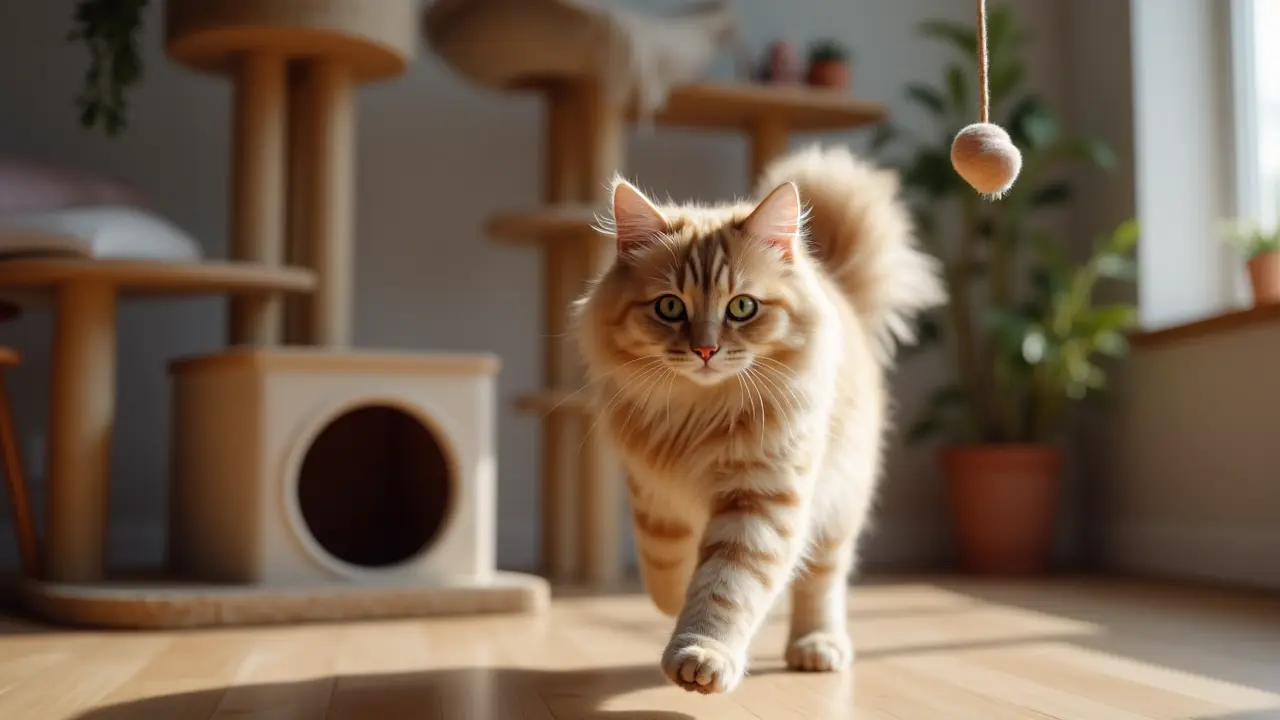
Siberian Cat Traits That Set Them Apart
Siberians are large, muscular cats with powerful hind legs and a strong, graceful gait. They typically weigh between 7 to 17 pounds and possess rounded paws, tufted ears, and a luxurious, bushy tail.
What truly sets the Siberian cat traits apart is the combination of strength and agility. They’re phenomenal climbers and often surprise owners with their love of leaping onto shelves and perches.
Coat
Coat
Eyes
Eyes
Build
Build
Tail
Tail
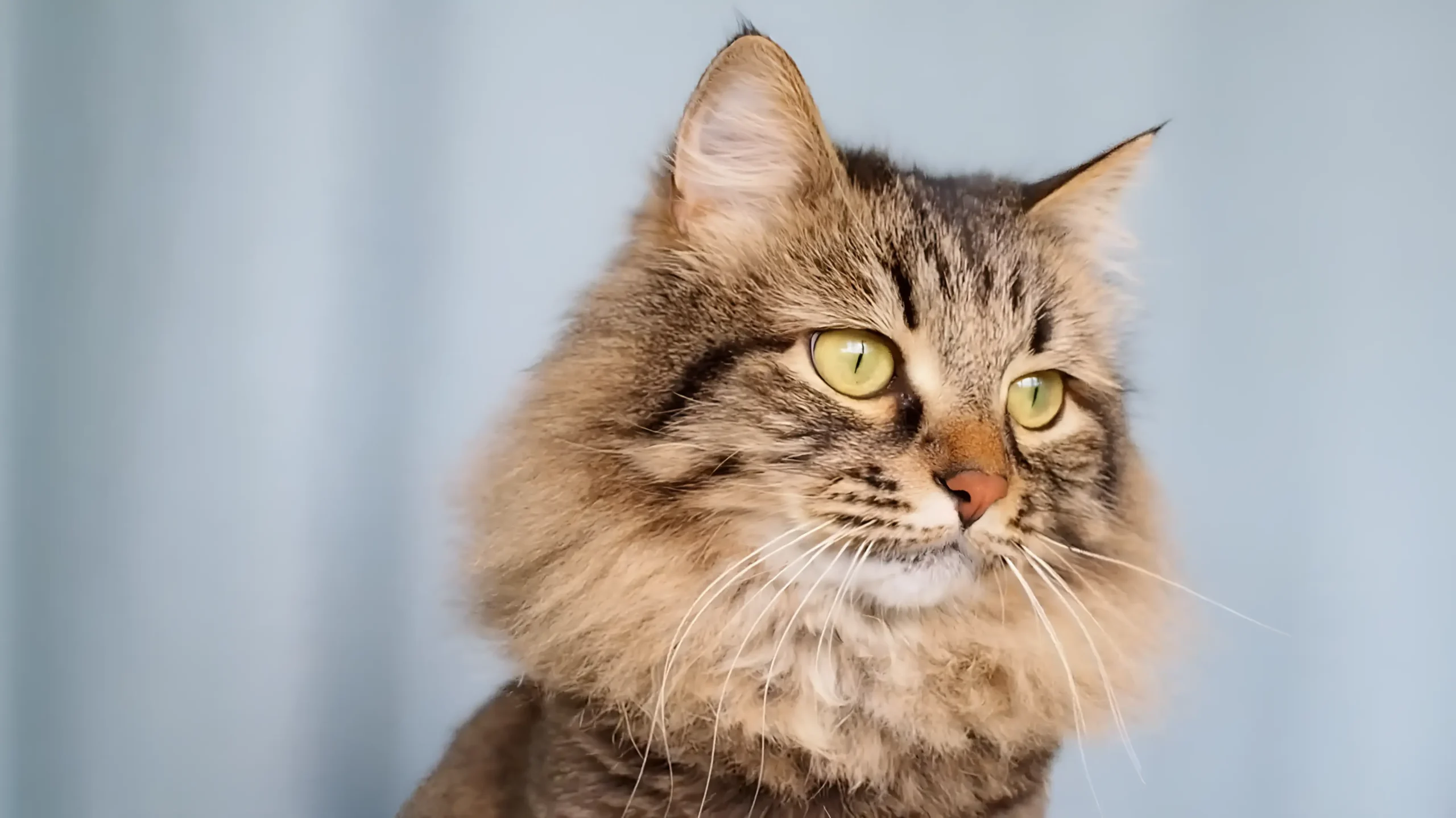
Siberian Cat Personality: Loyal, Loving, and Clever
The Siberian cat personality is often described as “dog-like”—loyal, affectionate, and attentive to their humans. These cats are social creatures who enjoy being part of the household and often follow their owners from room to room.
They’re also highly intelligent and emotionally intuitive. Siberians are quick learners, can open doors, play fetch, and even respond to their names. Unlike many aloof breeds, Siberians love interaction, whether it’s snuggling on the couch or chasing a feather toy.
Despite their playful energy, they’re not overly hyper. They balance activity with moments of calm and affection, making them ideal companions for families, singles, or even multi-pet households.
Grooming and Maintenance: Easier Than You Think
Given their thick coats, you might assume the Siberian feline requires extensive grooming—but surprisingly, that’s not the case. Their fur is designed to shed water and resist matting.
Grooming Tips:
Brush twice a week to prevent tangles and reduce shedding
Increase grooming during seasonal coat changes (spring and fall)
Regularly check ears, nails, and teeth for hygiene
Still, many owners notice a significant increase in shedding during certain times of the year. This often leads to the question of how much a Siberian cat shed, especially for those living in warmer or indoor-only environments.
Despite the heavy coat, Siberians are also known for being relatively hypoallergenic. They naturally produce lower levels of the Fel d 1 protein, a common allergen found in cats, making them a better option for allergy-sensitive families.
Diet & Nutrition: Keeping Your Siberian Strong
A well-balanced diet is crucial for supporting the muscular frame and thick coat of a Siberian. High-quality, protein-rich food is essential.
Some owners choose breed-specific options like Royal Canin Siberian Cat Food, formulated to support joint health, digestion, and coat care for this particular breed.
Nutritional Needs:
- High in protein for muscle maintenance
- Omega fatty acids for skin and coat
- Support for digestive health and immune system
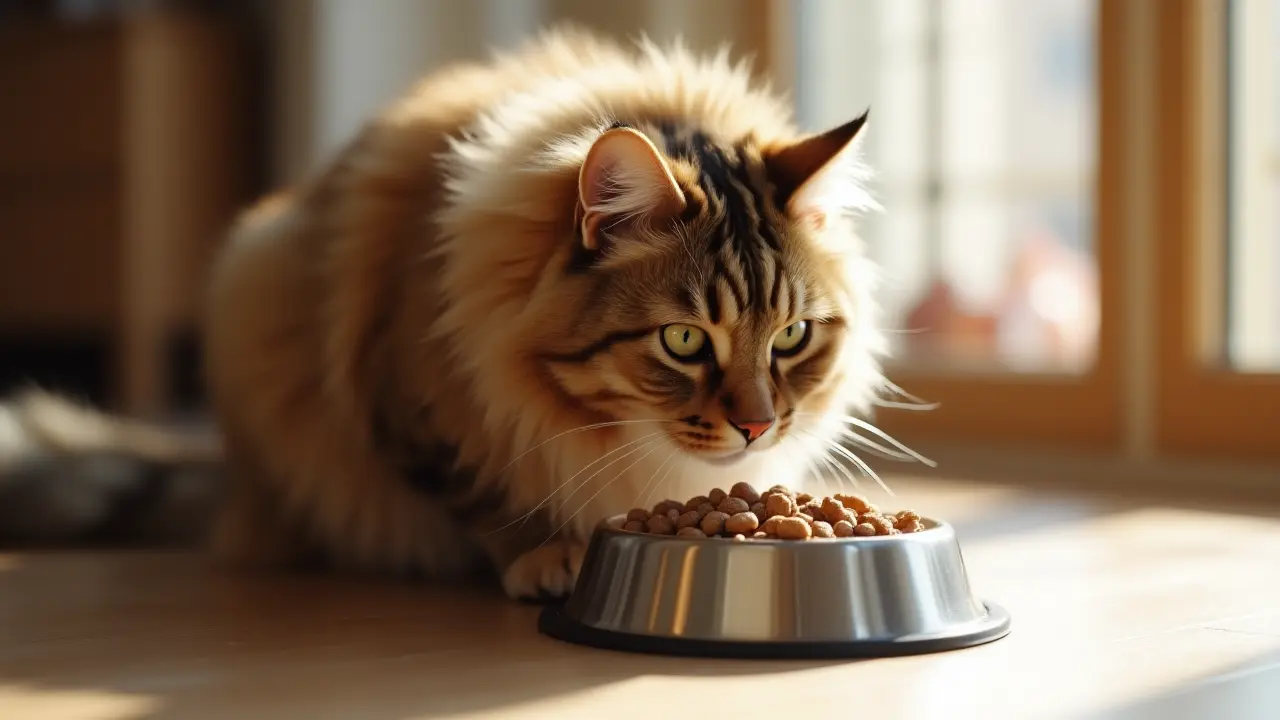
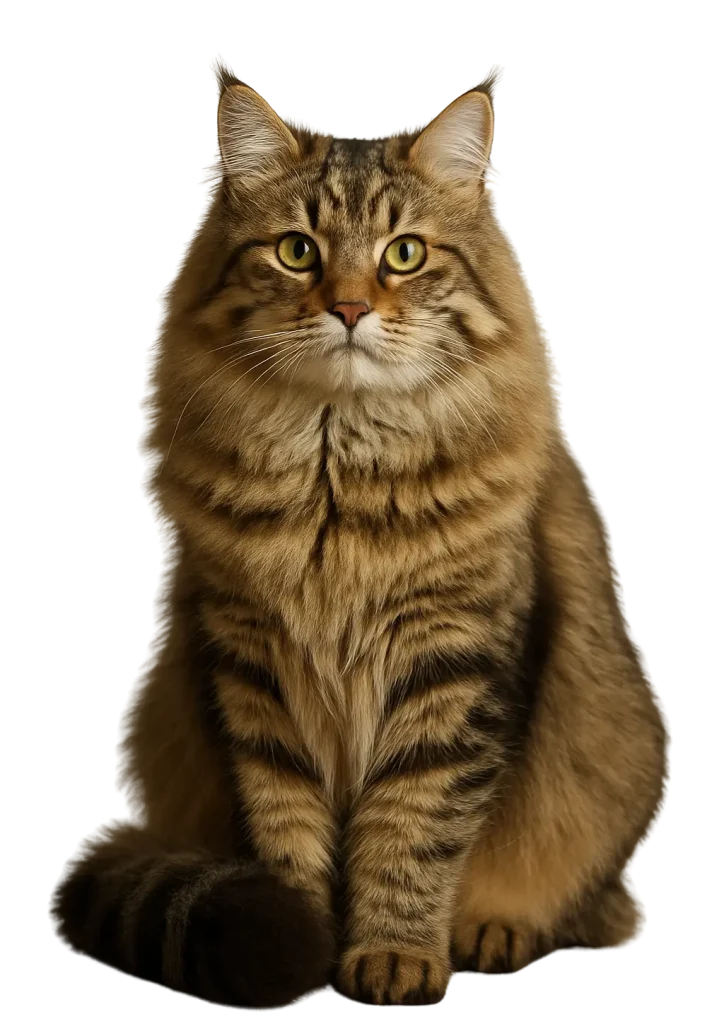

Health & Lifespan: What to Expect
The Siberian cat breed is generally healthy and hardy, thanks to centuries of natural selection. However, like all purebreds, they can be prone to certain genetic conditions.
Common Health Concerns:
A heart condition found in some lines
Due to their love of food and people
Regular dental care is recommended
With proper care, Siberians can live between 11 to 16 years, and some even surpass 18 with a healthy lifestyle. Keep in mind that care costs and long-term health planning should also factor into your budget. Curious what owning one might cost? See the breakdown of Siberian cat prices for more insight.
Playtime and Enrichment: Keep Their Minds Active
Siberians are smart, curious, and need both physical and mental stimulation to stay happy. Invest in interactive toys, puzzle feeders, and climbing furniture like cat trees and wall perches.
They love games like:
Fetch
Hide and Seek
Laser Chasing
Food Puzzles
Are Siberian Cats Right for You?
If you’re looking for a feline that offers the affection of a dog, the independence of a cat, and the beauty of a show animal, the Siberian might just be your perfect match.
They’re low-maintenance in terms of temperament, generally good with kids and other pets, and adapt well to indoor or mixed living environments.
Whether you’re a seasoned cat owner or welcoming your first pet, the Siberian cat delivers a deeply rewarding companionship rooted in love, loyalty, and playful charm.
FAQs
The price of a Siberian cat typically ranges from $1,200 to $2,000, depending on the breeder, pedigree, and location. Show-quality or rare-colored Siberians may cost even more. Always choose a reputable breeder who follows ethical practices and provides health certifications.
Siberian kittens usually cost between $1,000 and $2,500, with variations based on age, lineage, and whether they are spayed/neutered or microchipped. Kittens from champion bloodlines or hypoallergenic lines may fall on the higher end of the spectrum.
Yes, Siberian cats are considered low-allergen due to producing less of the Fel d 1 protein, a common trigger for cat allergies. However, no cat is 100% hypoallergenic, so spending time with the breed before adopting is recommended if you have sensitivities.
Absolutely. Siberians are known for their social, gentle temperament and generally do well with other cats, dogs, and even children. Early socialization helps them adapt even better.
Despite their long coats, Siberian cats are surprisingly low-maintenance. Brushing them 2–3 times a week is usually enough to prevent matting and reduce shedding—more during seasonal changes.
With proper care, a Siberian cat can live 11 to 18 years. Routine veterinary checkups, a healthy diet, and regular grooming contribute to a long and healthy life.
Yes! Many Siberian cats are naturally curious about water and may enjoy playing in sinks or splashing in shallow bowls. This trait comes from their origins in snowy, wet environments.
Siberians make excellent indoor companions. They’re playful, intelligent, and affectionate—perfect for homes of all sizes. Just be sure to provide plenty of enrichment like toys and climbing furniture.
Siberian Cat Info – Your trusted source for expert tips, breed facts, and care guides on Siberian cats.

